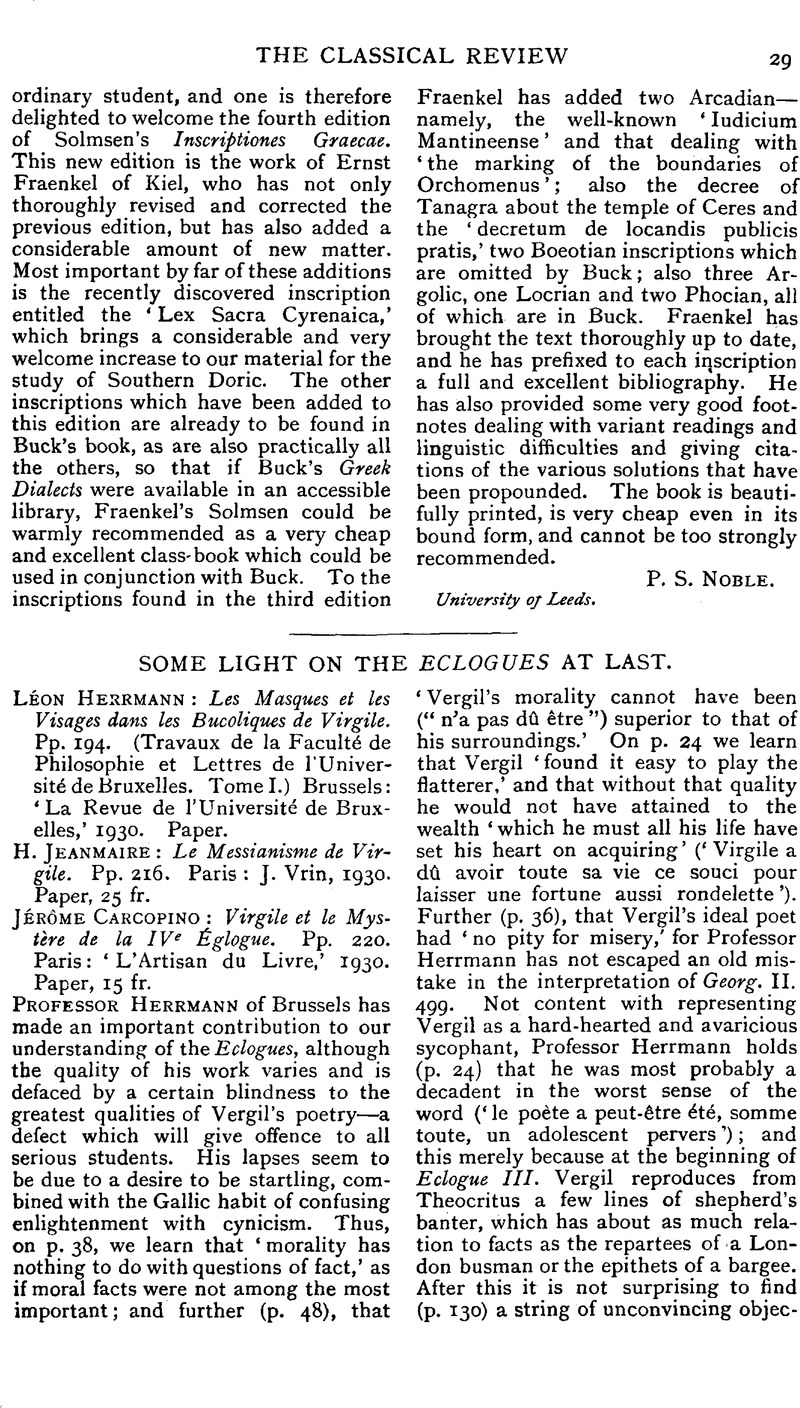No CrossRef data available.
Published online by Cambridge University Press: 27 October 2009

page 30 note 1 The arguments for attributing this poem to Gallus, but for believing at the same time that Vergil had contributed a line or two here and there to the early woik of his school-friend, seem to me still irresistible, and to have been confirmed by the laborious but futile criticism of Leo (Hermes 37, 1902, p. 14), which, as an eminent Dutch scholar remarked, proves something quite different from what Leo supposed.
page 30 note 1 It is strange that in describing Epirota and quoting Suetonius, Gramm. 16, twice, Professor Herrmann—so far as I can find—suppresses the fact, given by Suetonius, that he was banished by Augustus because of his connexion with the daughter of Atticus who was the first wife of Agrippa—except so far as to mention that he was her teacher. Possibly Professor Herrmann considered that these details were irrelevant to his immediate point. Perhaps; but they are relevant to our knowledge of the man and to the history of the time and ought not to have been omitted. I must add my complete dissent from Professor Herrmann's unsupported reference of the Eclogue to 49 B.C., and his hypothesis of large but unrecorded confiscations of property in that year. I see no reason to doubt that the Eclogue belongs to the period after Philippi.
page 31 note 1 These flowers, however, are not, as M. Jeanmaire states (p. 29), the blossoms which appear on the cradle, only those borne by the earth for the child's playthings. Anyone who has seen a baby playing with a springy shoot of some creeping plant, or with the big petals of a foxglove or snapdragon, will need no recondite explanation of Vergil's choice of these common Italian plants, which he combines, after his regular fashion, with others typical of Egypt and Greece. For no one will persuade me that the ridens acanthus has anything but its ordinary meaning of the glossy-leaved Greek shrub familiar to us in Corinthian capitals. The epithet must refer to the brightness of the leaf, not to the ‘flexibility’ of the stem of some species of gummy acacia (p. 188). The evergreen acanthus mentioned in Georg. II. 119 is no doubt a different tree, and possibly the bent acanthus of IV. 123. (The reference to IV. 137 seems to be based on a misreading.) In Eclogue III. 45, the reference must be to the plant which Greek sculptors loved to imitate.
page 31 note 2 It may be pointed out that the word baccar belongs to the class of substantives in -ar, like calcar, alvear, which are all the words of country farmers, and it means ‘the plant with big buds’ (baca, bacca), an excellent name for the foxglove, which, even in full bloom, has always some buds at the summit still unopened.